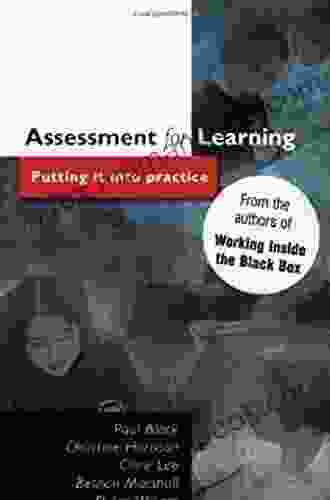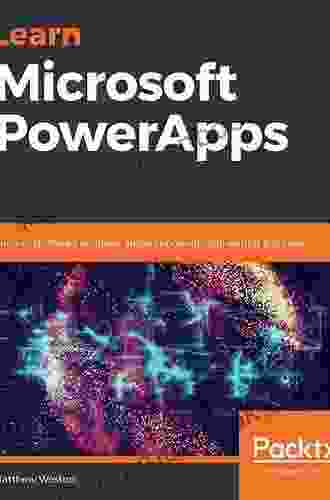Assessment For Learning (UK Higher Education OUP Humanities Social Sciences Education OUP)

Assessment plays a crucial role in higher education, serving as a means of evaluating students' knowledge, skills, and abilities. Traditionally, assessment has been focused on summative purposes, aimed at measuring student achievement at the end of a course or module. However, in recent years, there has been a growing emphasis on assessment for learning (AfL),which shifts the focus from assessment as a judge of student performance to assessment as a tool to support and enhance learning.
What is Assessment for Learning?
Assessment for Learning (AfL) is an assessment approach that uses assessment information to improve student learning. AfL involves ongoing assessment and feedback processes that are designed to:
- Identify student strengths and weaknesses
- Inform teaching and learning
- Motivate and engage students
- Promote self-reflection and metacognition
AfL emphasizes the importance of providing students with regular feedback on their progress, allowing them to adjust their learning strategies and improve their understanding.
4.6 out of 5
| Language | : | English |
| File size | : | 914 KB |
| Text-to-Speech | : | Enabled |
| Screen Reader | : | Supported |
| Enhanced typesetting | : | Enabled |
| Word Wise | : | Enabled |
| Print length | : | 156 pages |
Benefits of AfL in Higher Education
AfL offers numerous benefits within the context of UK higher education, including:
1. Improved Student Learning: AfL helps students understand their strengths and weaknesses, identify areas for improvement, and develop effective learning strategies. By providing ongoing feedback, learners can adjust their approach to learning, leading to improved knowledge acquisition and skill development.
2. Enhanced Teaching: AfL provides valuable information to educators about student progress and difficulties. This information can inform teaching practices, allowing educators to adapt their delivery, provide targeted support, and create a more engaging learning environment.
3. Increased Motivation and Engagement: AfL promotes motivation and engagement by providing students with regular feedback and recognition of their progress. When students see their efforts being recognized and their learning being supported, they are more likely to be motivated to learn and actively engage in the learning process.
4. Development of Higher-Order Thinking Skills: AfL encourages students to reflect on their learning, critically evaluate their progress, and develop higher-order thinking skills. By requiring students to explain their reasoning, provide evidence, and analyze their own work, AfL fosters critical thinking, problem-solving, and metacognition.
Key Principles of AfL
The effective implementation of AfL in UK higher education requires an understanding and adherence to its key principles:
1. Formative Focus: AfL is primarily formative in nature, emphasizing the use of assessment information to guide and improve learning rather than solely as a measure of achievement.
2. Feedback-Rich: AfL involves providing timely, specific, and actionable feedback to students to help them understand their progress and identify areas for improvement.
3. Active Student Involvement: AfL engages students actively in their own learning by promoting self-assessment, peer feedback, and reflective practice.
4. Alignment with Learning Objectives: AfL assessments are closely aligned with learning objectives to ensure that they accurately measure student understanding and skill development.
5. Variety of Methods: AfL utilizes a variety of assessment methods, including formative assessments, self-assessment, peer review, and portfolios, to cater to different learning styles and assessment purposes.
Implementation Strategies for AfL in UK Higher Education
Implementing AfL effectively in UK higher education requires a systematic and multifaceted approach that involves the following strategies:
1. Designing Formative Assessments: Educators need to design formative assessments that provide useful feedback on student learning and are aligned with learning objectives. These assessments can include quizzes, short essays, problem-solving tasks, and presentations.
2. Providing Timely and Effective Feedback: Feedback is crucial to the success of AfL. Educators should provide timely, specific, and constructive feedback that helps students understand their strengths and weaknesses and provides guidance for improvement.
3. Encouraging Student Self-Assessment and Reflection: Students should be encouraged to participate actively in their own assessment through self-assessment and reflection. This can be facilitated through self-reflection activities, peer feedback, and journals.
4. Using a Variety of Assessment Methods: Employing a variety of assessment methods allows educators to assess student understanding and skills in different ways and cater to various learning styles. This can include formative quizzes, portfolios, presentations, and group projects.
5. Incorporating Technology for AfL: Technology can support AfL by providing tools for online assessment, self-paced learning, and automated feedback. Virtual learning platforms, online quizzes, and peer review systems can enhance the effectiveness of AfL practices.
Challenges and Considerations
Implementing AfL in UK higher education comes with certain challenges and considerations:
1. Time Constraints: Providing ongoing feedback and supporting student self-assessment can be time-consuming for educators. Institutions need to provide adequate support and resources to enable educators to effectively implement AfL.
2. Student Resistance: Some students may initially resist or question AfL practices, especially if they are accustomed to a more traditional summative assessment approach. Educators need to communicate the benefits of AfL and provide clear guidelines to help students understand the purpose and value of these assessments.
3. Assessment Literacy: Both educators and students need to develop assessment literacy to effectively use AfL. Educators need training and support to design formative assessments and provide meaningful feedback, while students need guidance on self-assessment and reflection.
Assessment for Learning (AfL) is an essential approach in UK higher education that promotes student learning, enhances teaching, and fosters higher-order thinking skills. By implementing AfL principles and strategies effectively, educators can create a learning environment that supports students' academic and personal growth and prepares them for success beyond the classroom.
4.6 out of 5
| Language | : | English |
| File size | : | 914 KB |
| Text-to-Speech | : | Enabled |
| Screen Reader | : | Supported |
| Enhanced typesetting | : | Enabled |
| Word Wise | : | Enabled |
| Print length | : | 156 pages |
Do you want to contribute by writing guest posts on this blog?
Please contact us and send us a resume of previous articles that you have written.
 Top Book
Top Book Novel
Novel Fiction
Fiction Nonfiction
Nonfiction Literature
Literature Paperback
Paperback Hardcover
Hardcover E-book
E-book Audiobook
Audiobook Bestseller
Bestseller Classic
Classic Mystery
Mystery Thriller
Thriller Romance
Romance Fantasy
Fantasy Science Fiction
Science Fiction Biography
Biography Memoir
Memoir Autobiography
Autobiography Poetry
Poetry Drama
Drama Historical Fiction
Historical Fiction Self-help
Self-help Young Adult
Young Adult Childrens Books
Childrens Books Graphic Novel
Graphic Novel Anthology
Anthology Series
Series Encyclopedia
Encyclopedia Reference
Reference Guidebook
Guidebook Textbook
Textbook Workbook
Workbook Journal
Journal Diary
Diary Manuscript
Manuscript Folio
Folio Pulp Fiction
Pulp Fiction Short Stories
Short Stories Fairy Tales
Fairy Tales Fables
Fables Mythology
Mythology Philosophy
Philosophy Religion
Religion Spirituality
Spirituality Essays
Essays Critique
Critique Commentary
Commentary Glossary
Glossary Bibliography
Bibliography Index
Index Table of Contents
Table of Contents Preface
Preface Introduction
Introduction Foreword
Foreword Afterword
Afterword Appendices
Appendices Annotations
Annotations Footnotes
Footnotes Epilogue
Epilogue Prologue
Prologue Cathy Day
Cathy Day Emily Stiles
Emily Stiles A M Van Dorn
A M Van Dorn Michelle St James
Michelle St James Kevin Snelgrove
Kevin Snelgrove Michael Pealow
Michael Pealow Aaron Allston
Aaron Allston Reid L Rosenthal
Reid L Rosenthal Dr Harrison Sachs
Dr Harrison Sachs Jennifer Polimino
Jennifer Polimino William A Smith
William A Smith Ja Andrews
Ja Andrews D T Adams
D T Adams Crystal J Davis
Crystal J Davis Toby J Karten
Toby J Karten Charles Evans
Charles Evans Elle Gray
Elle Gray Katherine Johnson
Katherine Johnson David Pagano
David Pagano Kim Adams
Kim Adams
Light bulbAdvertise smarter! Our strategic ad space ensures maximum exposure. Reserve your spot today!

 Enrique BlairThe Lifeguards: A Captivating Dive into Passion, Loss, and the Enduring Power...
Enrique BlairThe Lifeguards: A Captivating Dive into Passion, Loss, and the Enduring Power...
 Barry BryantOf Desolate Dreams: Levi Reed, a Journey Through Loss, Grief and the Power of...
Barry BryantOf Desolate Dreams: Levi Reed, a Journey Through Loss, Grief and the Power of... Haruki MurakamiFollow ·11.3k
Haruki MurakamiFollow ·11.3k Elmer PowellFollow ·13.1k
Elmer PowellFollow ·13.1k Clay PowellFollow ·5.8k
Clay PowellFollow ·5.8k Derrick HughesFollow ·7.1k
Derrick HughesFollow ·7.1k Oliver FosterFollow ·5.5k
Oliver FosterFollow ·5.5k Steve CarterFollow ·13.1k
Steve CarterFollow ·13.1k Pablo NerudaFollow ·7.2k
Pablo NerudaFollow ·7.2k Chris ColemanFollow ·8.4k
Chris ColemanFollow ·8.4k

 Dwight Bell
Dwight BellSlightly Higher Interval Training For 5k Runners: A...
Interval training has become an...

 Jordan Blair
Jordan BlairLazarillo de Tormes and the Swindler: A Tale of Deception...
The story of Lazarillo de...

 Grayson Bell
Grayson BellDelphi Complete Works Of James Thomson Illustrated Delphi...
: Unveiling the...

 Cooper Bell
Cooper BellAssessment For Learning (UK Higher Education OUP...
Assessment plays a crucial role in higher...

 Luke Blair
Luke BlairThis Is How Knew: A Comprehensive Guide to Unlocking Your...
Have you ever wondered if...

 Forrest Blair
Forrest BlairExploring the Kingdom of the Blind: A Deep Dive into an...
The Kingdom of the...
4.6 out of 5
| Language | : | English |
| File size | : | 914 KB |
| Text-to-Speech | : | Enabled |
| Screen Reader | : | Supported |
| Enhanced typesetting | : | Enabled |
| Word Wise | : | Enabled |
| Print length | : | 156 pages |







